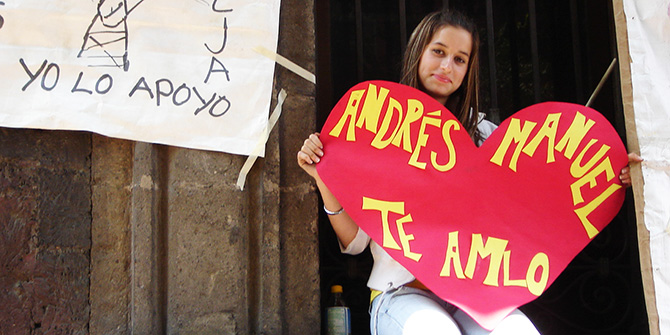 By motivating infringements of International Investment Agreements, shaping approaches to investor-state disputes, and politicising governments’ wider postures, citizens have played an important role in shaping international investment law, writes Julia Calvert.
By motivating infringements of International Investment Agreements, shaping approaches to investor-state disputes, and politicising governments’ wider postures, citizens have played an important role in shaping international investment law, writes Julia Calvert.
Investor-state dispute settlement (ISDS) has become a focal point in discussions on corporate rights and global economic integration. ISDS provisions, which became commonplace in international investment agreements (IIAs) signed since the 1990s, enable foreign investors to sue host governments unilaterally through international arbitration.
Proponents laud ISDS as a neutral and efficient means to resolve investment disputes that minimises potential political fallout between governments. Critics, however, claim that ISDS helps shield foreign investors from the oversight of domestic legal systems while enabling them to interfere in the democratic processes of host-countries.
After all, most ISDS cases are about challenging policies introduced by democratically elected governments. International arbitration bodies, the most prominent of which is the International Centre for the Settlement of Investment Disputes (ICSID) have also been criticised as lacking transparency and insulating legal proceedings from public scrutiny.
The rising number of legal claims brought against governments in recent years has exacerbated these concerns. According to the United Nations Conference on Trade and Development, 767 (publicly known) legal claims had been brought against 109 governments across every region of the globe by the end of 2016. This wave of litigation has prompted calls for reform from governments, civil society and development practitioners.
Given their public interest implications, the ‘closed door’ nature of ISDS proceedings has served as a particular point of contention for civil society activists. Yet it cannot be said that citizens are entirely excluded from participating in investment disputes. Citizens have played, and continue to play, important and multifaceted roles in governing investor-state relations and shaping how investment disputes play out. In the last decade, civil society groups have sought to exert influence through formal spaces, but it is often at the margins of ISDS proceedings that they have the most power. This influence inside and outside of formal proceedings is expressed in various ways.

First, citizen demands sometimes provide the motivation for infringing on IIAs. In Ecuador, social activism led by indigenous and environmental groups contributed to the Palacio government’s (2005 – 2007) decision to terminate the contract of Occidental Petroleum. Activists opposed the company’s failure to deliver on promised benefits to Amazonian communities and the negative impacts its operations on the environment and hunting and fishing grounds. Activists, joined by sympathetic members of the National Assembly, threatened to impeach Palacio should he allow Occidental to remain in the country. Terminating the contract, however, prompted Occidental’s arbitral claim.
In Argentina, a drastic economic crisis in 2001 left many households impoverished while emergency measures introduced to placate the crisis undercut the profitmaking of foreign-owned water providers. Some provincial governments and the national government of Eduardo Duhalde (and later Néstor Kirchner) sided with the demands of community activists and refused to allow water companies to increase water tariffs for fear it would limit citizens’ access to clean water. This resulted in several ISDS cases.
This is not to say that citizens are responsible for investment disputes. Indeed, many disputes are rooted in the problematic assumption underpinning IIAs that (neoliberal) regulatory frameworks can and should be maintained across decades regardless of changing domestic conditions and needs.
Second, citizens help shape government positioning in ISDS and are increasingly pushing at the margins to reform arbitral rules. Civil society organisations in Argentina, working with US-based partners and legal experts, were among the first groups to open formal spaces for citizen participation in ICSID proceedings. Their efforts resulted in the creation of an unprecedented opportunity to submit written testimony (amicus curiae) to ICSID tribunals. It is questionable whether their written statements impact arbitrator rulings, however, a growing number of governments and arbitral institutions are creating space for amicus curiae submissions from third-parties by revising arbitral rules, which demonstrates the potential for civil society influence on institutional reform in this area.
Also in Argentina, activist discourse related to the need to protect citizens’ right to clean and affordable water were, intentionally or not, picked up by state lawyers during ISDS proceedings involving water companies. This is likely because the human rights argument buttressed the government’s assertion that its actions were necessary to meet vital public interests amid crisis conditions. International law and some BITs exempt actions taken in dire circumstances from many of the substantive protections.
In Ecuador’s dispute with Occidental, activists did not seek formal participation in ISDS as they envisioned it to be a means of legitimating a process that was fundamentally bias towards corporate interests. Rather, they maintained a watchful eye on state-firm negotiations which limited the kinds of concessions state officials could offer the company to settle the case. This may have prolonged the proceedings, but strong social opposition to a foreign investor also means that state lawyers can take a firm bargaining position and perhaps avoid negotiating an unfair deal for the sake of discontinuing the litigation.

Lastly, citizens provide the political basis that helps shape government stances on international investment law. Last month, Ecuador terminated the remainder of its BITs, continuing the momentum achieved by its 2010 termination of 12 BITs and withdrawal from the ICSID Convention. These actions were largely a manifestation of social dissatisfaction with investor rights and Rafael Correa’s agenda of reasserting state sovereignty on the international stage. In the last decade, Latin America has exhibited increasingly diverse attitudes towards investor rights.
Ecuador is one of several countries that terminated BITs and withdrew from ICSID. Regional institutions are increasingly being used to reform investor-state relations. Mercosur countries, for instance, announced a new investment protocol that narrows the scope of key provisions and eliminates ISDS as an option for dispute resolution. The Union of South American Nations is finalising the development of an alternative arbitration centre. This is while other countries, such as Chile, Peru and Colombia, are deepening their commitments to foreign investors.
In some ways, these diverse responses reflect global trends related to the politicisation of investor rights. In other ways, they are the embodiment of each country’s unique struggle to harness foreign investment in ways that promote sustainable and inclusive economic growth while protecting human rights and the environment.
The return of the right in some “Pink Tide” countries leaves the future of investor rights in the region as an open question. Yet, continued pressure from civil society has eroded, and will likely continue to erode, regional consensus on the legitimate nature and scope of international investment law.
This is not to say that citizens intervene in all investment disputes or that they intervene in the same way when they do. Rather, citizens are more likely to intervene in cases where the rights and livelihoods of individuals and communities are at stake. It does suggest, however, the need to take civil society seriously in studies of ISDS and international investment law, particularly if we are to understand its future evolution.
Notes:
• The views expressed here are of the authors rather than the Centre or the LSE
• This post draws on the author’s recent article “Civil Society and Investor–state Dispute Settlement: Assessing the Social Dimensions of Investment Disputes in Latin America” (New Political Economy, 2017)
• Please read our Comments Policy before commenting





